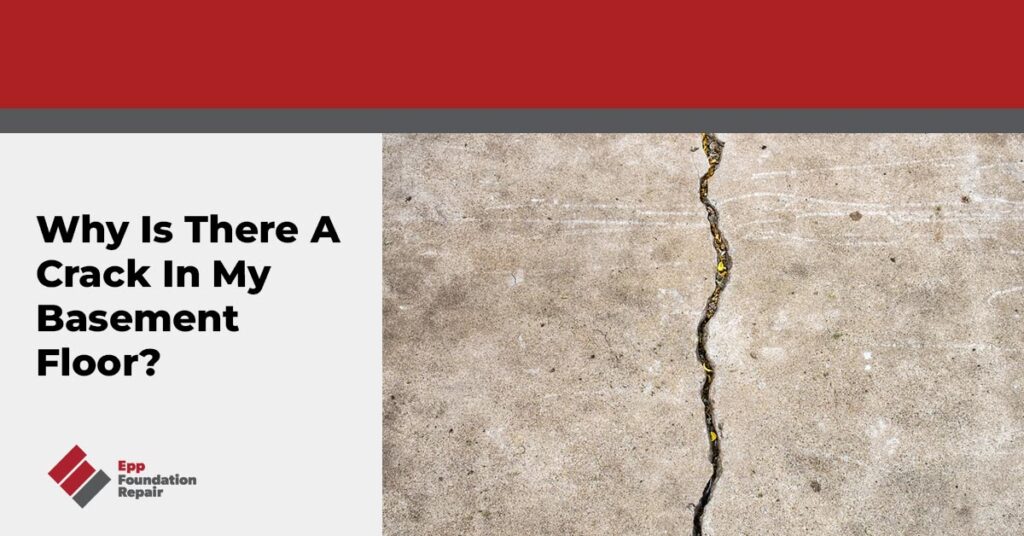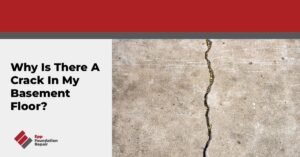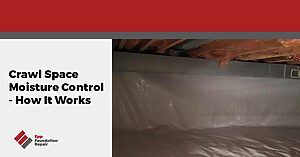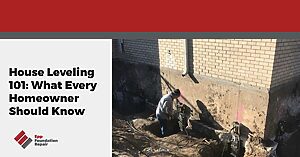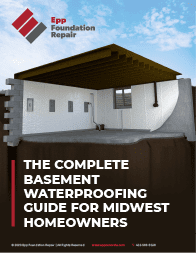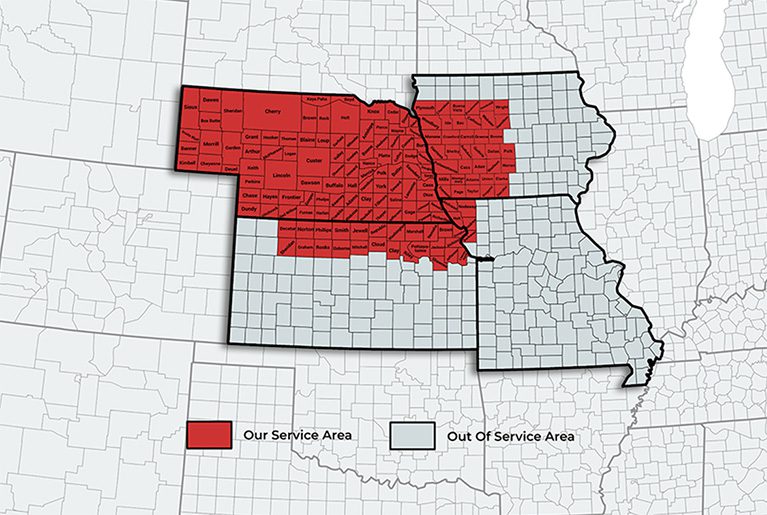Are you wondering why there’s a crack in your basement floor? If so, don’t hit that back button because that’s what we’re going to talk about in this article. We’ll explain why there may be a crack in your basement floor, whether or not the crack might threaten your home’s structural integrity, repair options for a crack in a basement floor, and offer ways you can help prevent basement floor cracks.
Why You Might Have A Crack In Your Basement Floor
If you’ve noticed a crack in your basement floor, you may be wondering how it got there and if it’s something to be concerned about. While cracks in concrete basement floors are common and often harmless, sometimes they can indicate more significant structural issues in your home. Therefore, it’s essential to identify the cause of the crack and address it promptly to prevent further damage. Some common causes of basement floor cracks are shrinkage cracks caused during the concrete curing process and structural cracks caused by differential settlement.
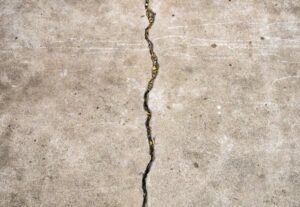
Basement Floor Cracks Caused By Shrinkage
A hairline crack in a basement floor was probably caused by shrinkage during the concrete curing process. They’re pretty common, and while they may look unsightly, they don’t affect your home’s structural integrity. However, they should probably be sealed because they can allow water to seep into the basement.
Basement Floor Cracks Caused By Differential Settlement
All foundations will settle into the ground slightly after they’re built. As long as the settlement is uniform, there’s no reason to lose sleep over it. However, sometimes the settlement is differential. In other words, only certain areas of the foundation are settling into the ground. Differential settlement puts tremendous stress on a foundation and can lead to cracks in a basement floor.
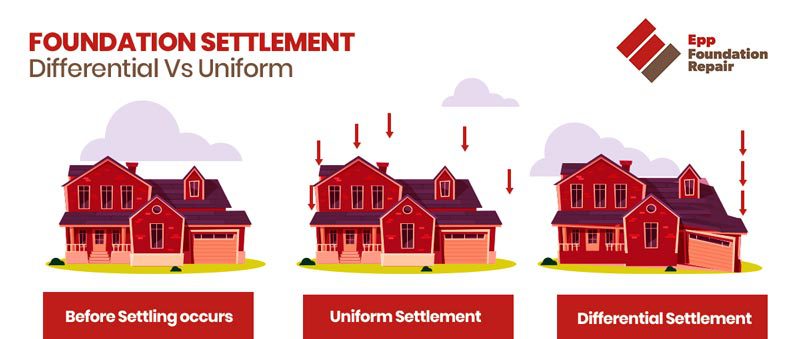
But what causes differential settlement?
Differential settlement can be caused by various things, including the following:
- Inadequately prepared soil – Before a foundation is built, the soil needs to be compacted. If this isn’t done, the foundation will settle unevenly into the ground after it’s built, and this could lead to a crack in your basement floor.
- Expansive soil – If the soil around the foundation contains a lot of clay, it will expand as it soaks up moisture and then shrink as it dries out. This creates movement in the ground that could, over time, cause differential settlement leading to cracks in the basement floor.
- Erosion-prone soil – Other types of soil are prone to erosion. If you have this type of soil under your home, poor drainage could wash soil away and cause voids to form. If the foundation sinks into the voids, there will be differential settlement, and this could cause basement floor cracks.
If you’re unsure of the cause of the crack in your basement floor, contact a foundation repair contractor right away for an inspection. If the crack in your basement floor was caused by differential settlement, you must take action to protect your home’s structural integrity. If you wait, you’ll pay more for the repair.
Also, check out our post – How to level floors in old house .
How To Fix A Crack In A Basement Floor
The chosen repair solution for fixing a crack in your basement floor will depend on what type of crack you’re dealing with. Was the crack caused by shrinkage during the concrete curing process? If so, you only need to seal it using epoxy so water can’t enter the basement. However, if the crack was caused by differential foundation settlement, you need to contact a foundation repair contractor who will inspect the crack, determine what caused it, and then provide the correct repair solution. If your home’s foundation is experiencing differential settlement, possible repair solutions include push or helical piers to stabilize the foundation.
It’s important to note that differential settlement will worsen over time, and then you’ll pay more for the repair. Therefore, if you’re not 100% sure the crack was caused by shrinkage during the concrete curing process, get it checked out right away.
Check out our blog – How To Level A Floor Made Uneven By Foundation Settlement
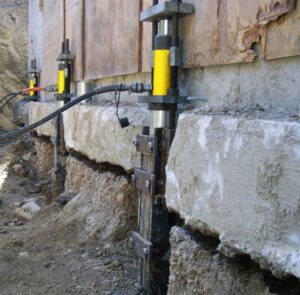
How To Prevent Basement Floor Cracks
If you want to prevent structurally significant basement floor cracks, your best bet is to do what you can to prevent differential settlement. Since the leading cause of differential settlement is excess moisture in the soil, you can go a long way toward avoiding trouble by simply getting groundwater around the foundation under control. Here are some ways to do that:
- Start by ensuring your gutters are free of dead leaves and other debris. This will prevent water from spilling over the side of your home and soaking into the soil around the foundation. Learn more about – Best soil for building foundation
- Ensure your downspouts are long enough and direct water at least 4 feet away from your foundation before releasing it.
- If there’s any water-hungry vegetation planted next to your home, consider relocating it.
- If necessary, regrade the yard around your house so it slopes away from the foundation. This will prevent water from draining toward the foundation.
- Invest in a drain tile system, either exterior or interior. When it comes to foundation waterproofing, nothing beats a drain tile system.
When to Seek Professional Help for A Crack In A Basement Floor
While a hairline crack in your basement floor probably isn’t a cause for concern, larger cracks usually indicate a problem with the home’s foundation. To be safe, contact a foundation repair contractor immediately if you notice any cracks in your basement floor. They can accurately diagnose the problem and offer the correct repair solution.
If you’re worried about a crack in your basement floor, contact us today to schedule an evaluation and receive a repair estimate. Since 1994, we’ve helped clients in Lincoln, Omaha, Kearney, Nebraska, Missouri, and parts of Northeastern Kansas with foundation repair, basement waterproofing, crawl space encapsulation, and concrete leveling for their homes.

